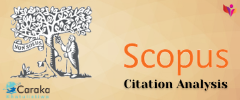Profil Pertanyaan Inkuiri Guru pada Pembelajaran IPA di Sekolah Dasar
Abstract
Keywords
Full Text:
PDFReferences
Brown, G. (1975). Micro-teaching a Programme of Teaching Skills. New York : Methuen & Co.
Depdiknas, (2006). Peraturan Menteri Pendidikan Nasional Republik Indonesia Nomor 22 Tahun 2006 tentang standar Isi Untuk Satuan Pendidikan Dasar Dan Menengah.
Dunkin, M. J. (1987). The International Encyclopedia of Teaching and Teacher Education. England: Pegamon Press.
Fahdini, R., Mulyadi, E., Suhandani, D., & Julia, J. (2014). IDENTIFIKASI KOMPETENSI GURU SEBAGAI CERMINAN PROFESIONALISME TENAGA PENDIDIK DI KABUPATEN SUMEDANG. Mimbar Sekolah Dasar, 1(1), 33-42. doi:http://dx.doi.org/10.17509/mimbar-sd.v1i1.1362.
Hein, G. E. dan Lee, S (1999).“Assessment of Science Inquiry”.Foundation Inquiry Thoughts, Views, and Strategies for K-5 Classroom. Volume 2. Arlington: Division of Elementary, Secondary, and Informal Education. National Science Foundation.
Jacobsen D. A., Eggen P., Kauchak D. (2009). Methods For Teaching: Metode-Metode Pengajaran Meningkatkan Belajar Siswa TK-SMA. Edisi ke-delapan. (Penerjemah Fawaid, A. Dan Anam. K). Yogyakarta: Pustaka Pelajar.
Jaenudin, Y. (2004). Pengaruh Tingkat Pendidikan dan Kesejahteraan Guru Terhadap Kualitas Kinerjanya di Madrasah Tsanawiyah Negeri. Tesis Magister Administrasi Pendidikan UPI Bandung. Tidak diterbitkan.
Lang, R. H. dan Evans, D. N, (2006). Models, Strategies, and Methods for Effective Teaching. United States: Pearson Education, Inc.
McREL. (2001). “How Does Teacher Pedagogical Knowledge Impact Instruction”. Science Teaching. Denver, Colorado: Mid-continent Research for Educational and Learning.
National Academy of Science. (2000). Inquiry and the National Science Education Standards: A Guide for Teaching And learning. Center for Science, Mathematics, and Engineering Education, National Research Council. Washington DC: National Academic Press.
National Research Council. (2000). Inquiry and the National Science Education Standards: A Guide for Teaching and Learning. Washington DC: National Academy Press.
Nurdin, S. (2009). Analisis Kemunculan Aspek Inkuiri dalam Evaluasi Pembelajaran IPA di MI. Tesis Magister Pendidikan Dasar Konsentrasi IPA UPI Bandung. Tidak Diterbitkan.
Oviana, W. (2009). Analisis Kemampuan Guru SD Memunculkan Aspek Inkuiri dalam Rencana Pelaksanaan Pembelajaran IPA dan Kesesuaiannya dengan Pelaksanaan Pembelajaran. Tesis Magister Pendidikan Dasar Konsentrasi IPA UPI Bandung. Tidak diterbitkan.
Ridwan. (2009). Metode dan Teknik Menyusun Proposal Penelitian. Bandung: Alfabeta.
Samatowa, U. (2006). Bagaimana Membelajarkan IPA di Sekolah Dasar. Jakarta: Departemen Pendidikan Nasional.
Samsudin, A. (2014). SUPERVISI AKADEMIK PEMBELAJARAN IPA MELALUI ICT BASED LESSON STUDY UNTUK MEMBANGUN LEARNING COMMUNITY GURU SD. Mimbar Sekolah Dasar, 1(1), 77-82. doi:http://dx.doi.org/10.17509/mimbar-sd.v1i1.867.
Sanjaya, W. (2008) Strategi Pembelajaran: Berorientasi Standar Proses Pendidikan. Jakarta: Kencana.
Sanjaya, W. (2008). Kurikulum dan Pembelajaran: Teori dan Praktik Pengembangan Kurikulum Tingkat Satuan Pendidikan (KTSP). Jakarta: Kencana.
Sapriya, dkk. (2008). Konsep Dasar IPS. Bandung: Yasindo Multi Aspek.
Saud, S. U. (2009). Pengembangan Profesi Guru. Bandung: Alfabeta.
Suhandani, D., & Julia, J. (2014). IDENTIFIKASI KOMPETENSI GURU SEBAGAI CERMINAN PROFESIONALISME TENAGA PENDIDIK DI KABUPATEN SUMEDANG (KAJIAN PADA KOMPETENSI PEDAGOGIK). Mimbar Sekolah Dasar, 1(2), 128-141. doi:http://dx.doi.org/10.17509/mimbar-sd.v1i2.874.
Sund, R.B. dan Trowbridge, L. W. (1973). Teaching Science by Inquiry in the Secondary School. Second Edition. Ohio: Bell and Howell Company.
Turney et al. (1983). Sydney Micro Skills Redeveloped: Explaining Inroductory, Procedures and Closure, Advanced Questioning. Series 2 Handbook. Australia: Sydney University Press.
DOI: https://doi.org/10.53400/mimbar-sd.v5i2.11441
Refbacks
- There are currently no refbacks.
Copyright (c) 2018 Mimbar Sekolah Dasar

This work is licensed under a Creative Commons Attribution-ShareAlike 4.0 International License.
View Mimbar Sekolah Dasar Stats



.png)
